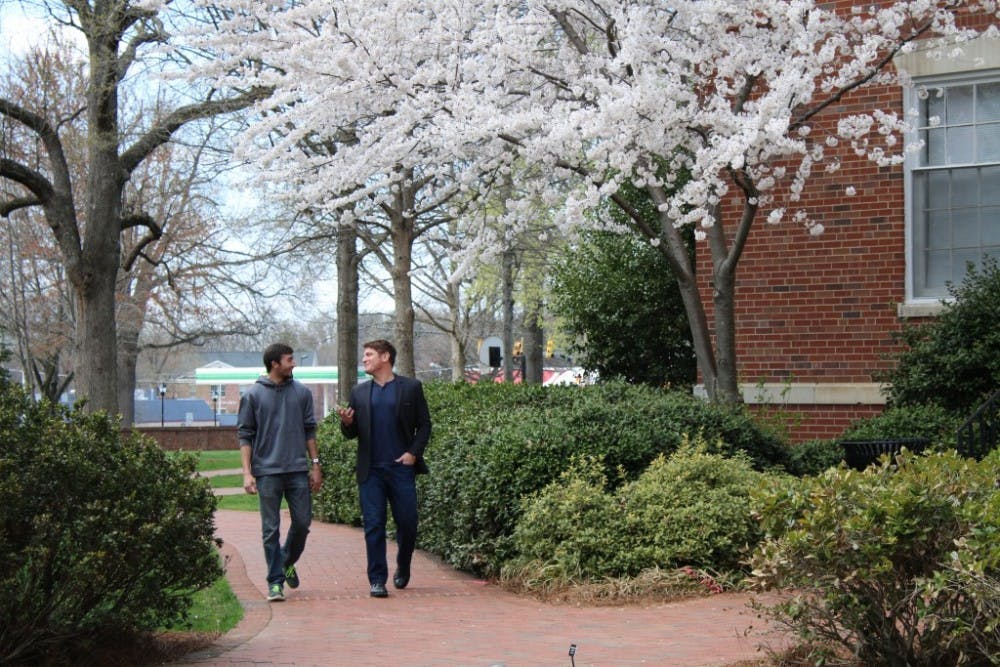“Purpose, not paycheck,” drove Paul Castro to leave his life as a screenwriter in California to teach in Elon University’s cinema program. It also inspires the associate professor of communications to take the time to walk around campus with each student enrolled in his courses every semester.
Although they’re not a job requirement, Castro said these walks give students space to express their worries and fears, as well as their aspirations.
Before he wrote acclaimed films such as “August Rush,” Castro volunteered part-time at a suicide prevention call center. This taught him the value to have someone to talk to in the midst of what he calls “the scar tissue of life.” For him, being a successful professor is understanding students outside the classroom.
“The first job as an educator is protection,” he said. “Literally, because we have a dangerous world out there, but specifically with creativity. When you’re creative, you’re really vulnerable. It’s important to create a safe environment for them to think, ‘I can fail, I can be unimpressive and I don’t have to be brilliant the first time every time — or I can be. It doesn’t matter.’”
Castro said students often reveal things about themselves on these walks that they would never have discussed otherwise. Students aren’t forced to go on these walks, but Castro expects to walk with 60 students from the three screenwriting classes he is teaching this semester.
Junior cinema major Kayla Hammer appreciates Castro’s unusual practice.
“When I first found out he did the walks, I was really grateful to have a professor that genuinely wanted to take the time out of his day to get to know his students better,” she said.
Castro doesn’t only learn from his students — he learns just as much from his 5-year-old daughter.
“My daughter is so fascinating,” Castro said. “I learn so much from her. It reminds me to continually be curious about things, because when she discovers things for the first time, it’s just awesome. She has a joy for life.”
Castro attributes this joy to her youth and innocence and he says she learned it from him, as he approaches the toughest situations well.
“In life, you have to be like water,” he said. “You have to be malleable — you have to be able to adjust to things, or else you’re not going to exist. You’re going to get all these things thrown at you with two reactions: ‘Oh, my god, this is horrible’ or ‘This is awesome.’ And when you start to look at everything as awesome, even these little owies, then they become awesome.”
Castro explains this ideology to students on his walks. He believes cinema and screenwriting are about more than just being famous — they are about contributing to the world.
“It’s a great gift and a great responsibility,” Castro said. “When you’re aligned with your spirit and you tell a story, then God’s working through you — whatever that means to you. And it’s out of your hands then. You give that gift to another person.”
The powerful words Castro shares with students on their walks have lasting impacts that stay with them as they continue their journeys at Elon and beyond. During his stroll with Hammer earlier this semester, Castro offered advice that has stayed with her.
“He said something I’ll never forget: ‘Kayla, you’ve got to start claiming your life,’” Hammer said. “That phrase has stuck with me since the walk, and it reminds me to do whatever’s best for me and my future and to stay grounded in my morals and who I truly am.”


